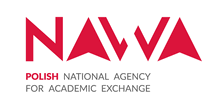Thermal-hydraulic analysis of the can with tellurium dioxide target material during irradiation process
2021.10.29 15:16 - Katarzyna KuźniarIodine-131 is a widely used radioisotope that decays by the emission of a beta particle. It is used to treat hyperthyroidism and some cancers of the thyroid gland, which can absorb this element. Iodine-131 is also used as a marker in radiotherapy, e.g. as meta-iodobenzylguanine-131I (131I-MIBG) in the treatment of phaeochromocytomas and neuroblastoma. About 10% of the worldwide supply is produced in Polatom, Świerk. The production process is long and complicated. It starts with irradiation of containers with natural tellurium dioxide in the MARIA Research Reactor and ends in the Polatom laboratories. Tellurium dioxide is widely used as a target material for iodine-131 production. The production process can be improved using enriched target material. The new method of irradiating the targets will allow for the greater activity of 131I while reducing the amount of production waste and more efficient use of the vertical channels of the reactor. Tellurium dioxide shall not reach the melting point during the irradiation due to safety reasons. The thermal-hydraulic analyses for various variants of geometry and boundary conditions were performed to verify the safety assessment of the irradiation process and determine the possible innovation. As a result, the enriched target material irradiation was introduced to the MARIA Research Reactor.
| Załącznik | Wielkość |
|---|---|
| 485.55 KB | |
| 441.23 KB |











